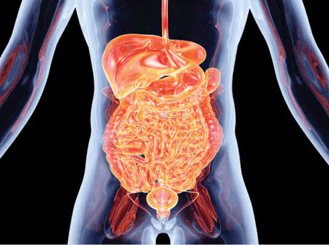Increasing Bowel Transit Time
Join Our Movement
What started as an idea has become a national movement. With your support, we can influence policy and inspire lasting change.
Become an Advocate
Adjusting your diet is another way you can try to speed up your bowel through external actions. Give up processed foods and junk foods. That can be difficult to cut down over time. Eat just a small amount of them in extreme moderation. Instead, switch to fresh produce and fruit. These foods do not have the fiber already broken down for you, so your body does that in the bowel. Unprocessed foods contain a great deal of natural bulk and fiber. Some nutritional support drinks have added fiber varieties.
There is evidence that indicates that fiber laxatives can remove too much water from the stool, making it more difficult to pass if you cannot drink the amount of water required for them to work. Fiber laxatives have been the mainstay for individuals with reflexive bowel, but now it is noted that it may dry the stool too much, creating a more difficult and slower bowel program. This may not be your situation but if this seems like an issue for you, speak with your healthcare professional about alternatives and how to taper off fiber laxatives prior to stopping cold turkey. If your bowel has become accustomed to fiber laxatives, a transition time will need to be made. Slowly switching to less processed foods appears to be a better alternative. Foods that are rich in fiber include whole grains, beans, nuts, berries, oats, and crunchy vegetables like carrots and celery.
Pay attention to what you are drinking as well. Try to increase fluid intake slowly if your bladder program allows it. It takes fluid to move stool through your bowel, so you need to be well hydrated. Some drinks dehydrate the body. These include caffeine and alcohol. You can still enjoy these beverages but use them in moderation. Avoid sugary and sugar-free drinks as these add calories and salt, increase your blood sugar, and do not help with digestion. Foods that are high in fluid content, such as soups, can add to your fluid intake.
Have your healthcare provider review your medications for constipation effects. This should include all prescription, over-the-counter, supplements, recreational or other drugs you may have added along the course of your life. If a medication or combination of medications has the side effect of constipation, ask if there is an alternative. On the other hand, be sure to take stool softeners or other bowel-encouraging medications or supplements that work for you. Just be sure to report them on your medication list to ensure you are not compounding your slow bowel when you thought you were helping it.
Pediatric Consideration: Children’s bowels are generally faster in transit time due to their youth; however, this is not always the case with mobility issues. Keeping a child active can be a challenge. If possible, for your child, allow time outside of the wheelchair. Children like to roll around on the floor and play. Be sure their skin is protected to avoid pressure injury or rug burn.
Teens will need some encouragement to find a physical activity that they enjoy. Exposure to a variety of activities to find one they are interested in helps. There are many adaptive programs available in the community for children and teens.
Schools should also be enlisted to provide physical education programs that are adapted to your child's needs. If your child has an Individual Educational Plan (IEP), be sure it has a section about physical activity specifically listed in it. This is your contract for what will be provided and how it will be accomplished.
